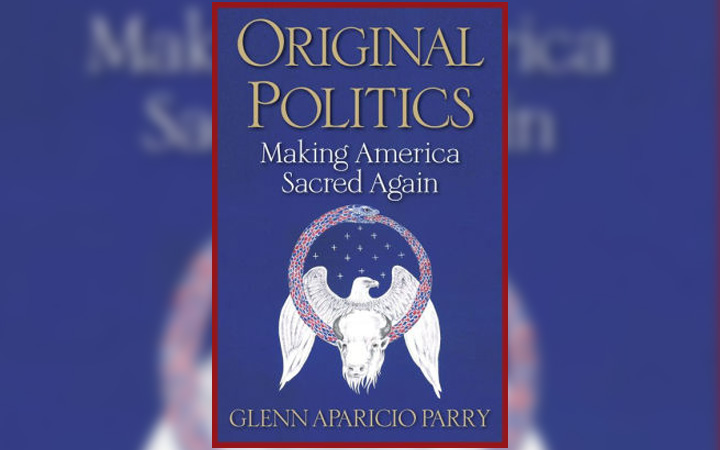The Amazing Story of the 27th Amendment

An Excerpt from “Original Politics: Making America Sacred Again” printed with permission from Select Books, New York 2020
When Madison first submitted a bill of rights to Congress, it included seventeen proposed amendments. Of the seventeen, only twelve were passed (which required a 2/3 approval vote in both the House and Senate), and of those twelve, two were not ratified by enough states (3/4 of the states must ratify an amendment before it becomes affixed as an addition to the Constitution). Thus, only the first ten amendments became adopted, and these became known as The Bill of Rights.
Of the two amendments not ratified at the time, one was intended to be the Second Amendment, an indication of how important Madison considered it to be. Once the amendment failed, however, it was forgotten—only to be resurrected from the trash bin of history in an unlikely and somewhat miraculous manner. A University of Texas student, Gregory Watson, was assigned to write a paper on governmental process in 1982. Mr. Watson was studying books on the US Constitution when, in his own words, this happened:
“I’ll never forget this as long as I live,” Watson begins. “I pull out a book that has within it a chapter of amendments that Congress has sent to the state legislatures, but which not enough state legislatures approved in order to become part of the Constitution. And this one just jumped right out at me.”
The unratified amendment read as follows:
No law varying the compensation for the services of the Senators and Representatives shall take effect until an election of representatives shall have intervened.
In other words, if Congress were to vote to give itself a raise, it would not take effect until after the next election, thus giving constituents the opportunity to decide if they deserved it.
Watson was amazed by both the content of the memo and the fact that it had not been ratified into law. In proposing the amendment, Madison said at the time, “There is a seeming impropriety in leaving any set of men without control to put their hand into the public coffers, to
respond, “Ya think?”
Watson submitted his paper and got a C grade. He was none too pleased about that and thought to himself, “I’m going to get that thing ratified.” iii To make a long story short, Watson spent the next ten years doing exactly that, and the 27th amendment was ratified. And when his old professor, Sharon Waite heard about it, she changed his grade from a C to an A. iv
The Enduring Influence of Native America on Current US Politics
Had the 27th Amendment passed and become the Second Amendment, as Madison originally intended, congressional delegates might not be as handsomely compensated as they are today. They would also be closer to the spirit of our original politics, a spirit found in the Articles of Confederation. Yet, while the discarding of some of the more noble intentions of the Articles of Confederation might cause the reader to surmise that the Constitution represented a complete parting with Native American ways, that would be a false conclusion. For despite the fact that Hamilton and Madison considered the checks and balances of the United States Constitution to be on the cutting edge of political science—equivalent to other advances in sciences of his take out money to put in their pockets.”
To which someone employing modern slang might
time—the ancient Iroquois Great Law of Peace contained many similar checks and balances. Again, I do not find this coincidental.
Many point to the Great Law as the reason the Iroquois Confederacy endured for so long; and indeed, the Great Law outlined a wise and balanced approach. Each of the nations had an assigned role. The Onondaga were acknowledged as the firekeepers, which can be interpreted as a form of executive branch that oversees the entire process. In terms of decision-making, the Mohawk and Seneca were considered the “Older Brothers,” and the Oneida and the Cayuga were the “Younger Brothers,” acting in a manner that foreshadowed the House of Representatives and the Senate. The Mohawk and Seneca, when they reached consensus on a question, would report to the Cayuga and the Oneida. The Mohawk would then present the consensus to the Onondaga, who would render a decision. However, if the Onondaga decision did not resonate with the Younger and Older Brothers, they could reconsider the question. If they remained united in opposition to the decision of the firekeepers, the Onondaga would be compelled to accept this outcome.
Thus the modern Congress of the United States in many ways mimics the Great Law. The House of Representatives is akin to the Younger Brothers (Cayuga and Oneida) since they serve a shorter term in office (two years). The delegates of the Senate, who serve a six-year term, are akin to the Older Brothers (Mohawk and Seneca). The Executive Branch of the United States (comprised of the judiciary and the president) is akin to the Onondaga Council. The judiciary has the right to overturn a law on the grounds that it is unconstitutional; likewise the president has the right to veto a law. But just as in the Great Law, that veto can be overridden if Congress is united against the decision of the Executive branch. The threat of a veto can also be nipped in the bud if the passage of a bill occurs with a veto-proof majority, something that happened as
recently as when Congress overwhelmingly voted in 2018 to not allow President Trump to overturn sanctions against Russia.

 bout the Author
bout the Author




